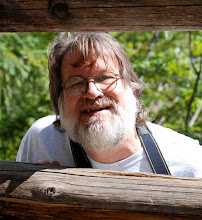Tragedy
Over and over and over and over and over and over and over and over and over and over and over and over and over and over and over and over and over and over and over and over and over and over and over and over and over and over and over and over and over and over and over and over and over and over and over and over and over and over and over and over and over ...
You get the idea.
Over and over again we hear on the News You Can Lose the word "tragedy" and the word "tragic." And almost always these words are associated with death. Here are a few headlines I googled:
Youth League Suffers Second Tragic Loss--Cheerleader Dies Just Weeks After Football Player
Friends Pay Tribue to Tragic Farmer John, 40
Mom's Tragic Mistake
I am becoming more convinced that this news as soap opera institution we have going on here is quite literally up to no good, in a very real sense hypnotizing readers, viewers, and listeners to believe in the equation death = tragedy.
To go back to that classic film Network, I'm as mad as hell, and I'm not going to take it anymore! I am going to start speaking out about this. Well, blogging out, at least.
Here's the deal: I have heard enough people talk about their near-death experiences to believe that there is a real possibility (how's that for being suggestive without being firmly committal) that dead people are having a blast.
Tragedy is just not a word NDErs use to describe their out-of-body experience. It's a word many of them use to describe having to come back.
To use the words George Bush so eloquently employed in the Bush-Kerry debates, coming back to material Earth "is hard work." (Granted, Bush was talking about Iraq.)
I will continue to drone on this theme: we as a society spend billions of dollars to explore outer space for clues about the origins of life and our place in the universe. But we comparatively spend diddly to explore what happens after death despite mounting anecdotal evidence that we don't just fade to black, Jack.
So what's the deal with tragedy?
I understand personal grief. But grief is for those left behind. It's not grief for those transported to the next chapter in their autobiography of life.
I understand that much of science and society demand that if we are to believe that we don't die, we need factual evidence to support it. But in the face of mounting anecdotal evidence that suggests that life is much grander than we ever thought, why do we continue to perpetuate this tragedy myth?
I think the much greater and infinitely more interesting quest is to discover what's going on here with all these accounts of out-of-body epiphanies.


0 Comments:
Post a Comment
<< Home